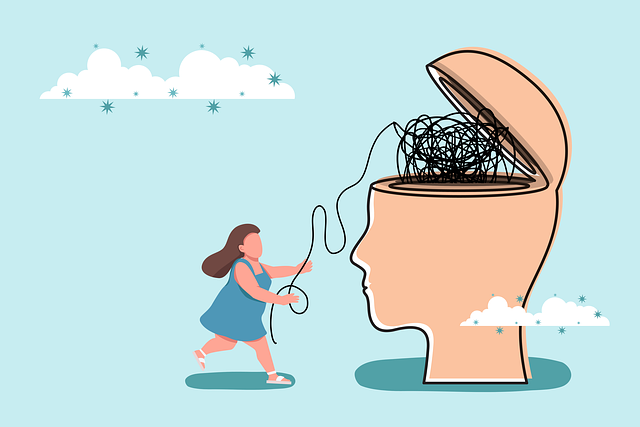Can Working Remotely Cause Anxiety?
It’s no secret that working remotely can have its perks. From the comfort of your own home, you can take conference calls in your pajamas, finish up work deadlines at midnight and never have to worry about traffic again. But with all these conveniences comes a new set of concerns—like whether or not working from home will cause you to feel isolated, anxious or be unproductive.
According to the questionnaire survey by the University of Southern California Chan Division of Occupational Science and Occupational Therapy, out of the respondents who work from home, 74% said they’d experienced a newfound mental health issue, and 55% stated they’d encountered two or more. These issues included anxiety, sadness, insomnia, low motivation levels, stress and difficulty focusing.
Considering the survey, we can see that working remotely may impact mental health. However, it’s important to note that not all remote workers will experience negative consequences—it all comes down to the individual.
The Rise of Working Remotely

In the past, working remotely was seen as a perk—something that only upper-level employees could do. But now, with technological advancements, more and more people are finding that they can do their jobs from anywhere.
According to a survey by ConnectSolutions, those who work remotely, even just a few times each month, are more productive. Out of that group, 77% said they were more productive, with 30% explicitly saying they could get more done in less time.
So, if working remotely can make you more productive, why are so many people finding it causes anxiety? Let’s take a closer look at some of the most common concerns.
How Does Remote Work Affect Mental Health?

As we said before, not everyone who works remotely will have a positive experience. In fact, a poll by the Kaiser Family Foundation shows that people who work from home are less likely to experience a positive outcome.
According to a 2021 poll by the Kaiser Family Foundation, a health policy research organization, stress from the pandemic has negatively impacted the mental health of 53% of American adults. In the UK, half a million more people are expected to experience poor mental health this year compared to without coronavirus.
While it’s impossible to know exactly how many people will be impacted by poor mental health due to working remotely, we know that some key factors may contribute to a negative experience.
The three most common issues that remote workers face are:
Loneliness and Isolation

When you work remotely, you’re not surrounded by co-workers. This can lead to feelings of loneliness and isolation, which can eventually turn into anxiety or depression.
To combat this, try to make an effort to socialize outside of work. Join a club or take a class—anything that will help you interact with others regularly. You can also use video conferencing to connect with co-workers and friends, which can help reduce feelings of isolation.
Anxiety, Stress and Pressure
Who doesn’t feel a little stressed out from time to time? But when you work remotely, it’s easy for that stress to turn into anxiety. This is because you might feel like you’re not doing enough or not meeting your co-workers’ expectations.
If you find yourself feeling anxious, take a step back and reassess your work schedule. Make sure you’re not overworking yourself and that you’re taking breaks throughout the day. You should also try to set realistic goals, so you don’t feel like you’re constantly falling behind.
Depression

Feeling down while working from home is common when you feel like you’re in a rut. Without noticeable signs of progress like a new office or title, it’s easy to feel undervalued compared to your professional working friends.
This is why it’s essential to set small goals for yourself and celebrate your accomplishments, no matter how big or small. When you have something to work towards, staying motivated is easier. You can also try connecting with friends and family to get outside support.
What Are Some Symptoms That Someone Is Having Difficulty with Their Mental Health While Working from Home?
With all of this in mind, what are some early indicators that someone is struggling with their mental health or feeling burnout while working remotely? Here are a few signs to look out for:
Withdrawing from social activities
Loss of interest in work or hobbies
Feeling more fatigued than usual
Trouble sleeping
Changes in appetite
Feeling more irritable or agitated
- Strained relationships
How to Deal with Anxiety While Working Remotely?
So far, we’ve looked at some factors contributing to anxiety while working remotely. But what can you do to combat these feelings? Here are a few tips:
Take Breaks throughout the Day to Clear Your Head
When you’re feeling anxious, it can be helpful to take a break from work and clear your head. Step away from your computer and walk outside or do some deep breathing exercises. Taking breaks will help you stay focused and avoid feeling overwhelmed.
How often should you be taking breaks? The answer depends on how you’re feeling. If you find yourself getting tense or feeling anxious, take a break. It’s also a good idea to take a break after you’ve been working for a few hours straight.
Eat Healthy Food and Stay Hydrated
What you eat and drink can significantly impact your anxiety levels. Be sure to eat healthy food and stay hydrated throughout the day. Avoiding caffeine and sugary drinks will help you stay calm and avoid feeling jittery or on edge.
Here are a few other tips for eating healthy:
Avoid processed foods and eat more whole foods.
Get enough protein and fiber to keep you full and avoid blood sugar crashes.
Drink plenty of water to stay hydrated.
Limit your alcohol intake.
Get Enough Sleep Each Night
Getting enough sleep is crucial for managing anxiety. Daily sleep deprivation can cause your anxiety levels to skyrocket. Make sure you get at least 7-8 hours of sleep each night to feel rested and refreshed in the morning.
You can also try using a sleep app to track your sleep and get insights into your sleep patterns. This can help you figure out what’s causing your sleepless nights and how to get better sleep.
Be transparent About Boundaries
One of the benefits of working remotely is that you have more control over your schedule. But that doesn’t mean you should be available 24/7.
As a remote worker, it’s important to be transparent about your boundaries with your employer. Let them know what hours you’ll be available and when you need breaks. This will help you avoid burnout and manage your work-life balance.
Set Realistic Expectations
When you’re working remotely, it’s easy to feel you need to be always available. But this is unrealistic and can lead to burnout.
Instead, set realistic expectations for yourself and your work. Make sure you’re taking breaks and disconnecting from work when you need to. This will help you avoid feeling overwhelmed and stressed out.
Switch off When You’re Away from Work
Just because you’re working remotely doesn’t mean you always have to be available. When you’re not working, ensure you’re completely disconnected from work. This means no checking your email, taking calls or working on projects outside work hours.
This can be easier said than done, but it’s essential to make sure you’re taking time for yourself. When you’re constantly connected to work, it can be hard to relax and unwind. This can lead to increased stress and anxiety.
Don’t Suffer in Silence
Have you ever felt like you couldn’t talk to anyone about your anxiety? You’re not alone. Many people suffer in silence because they’re embarrassed or afraid to talk about their anxiety.
But it’s essential to reach out for help if you’re struggling. Talk to your doctor or a therapist about your anxiety. They can help you develop a plan to manage your anxiety.
You can also join an online support group or find a local meetup group for people with anxiety. This can be a great way to connect with others who understand your struggles.
Block Potential Paid Time Off (PTO) In Advance
Never assume you’ll be able to work from home when you want. If your company has a policy of offering PTO in advance, take advantage of it! This way, you can have peace of mind knowing that you’ll be able to work from home when you need to without having to worry about taking time off work.
Make a PTO To-Do List
Try making a PTO To-Do List instead of a regular to-do list the next time you have paid time off. This can help reduce anxiety and manage your time more effectively. Some ideas for items on the list include practicing yoga, going for walks or hikes, sleeping X hours per night, napping X hours per day, reading X chapters in a new book, etc.
Set Up a Dedicated Workspace
If possible, set up a dedicated workspace that is just for work in your home. This can help you to focus and be more productive when working from home. It can also help to reduce distractions and make it easier to take breaks when needed.
Take a Moment for Gratitude
It can be easy to dwell on the negatives, especially when something terrible happens or we make a mistake. We often immediately think of all the ways things could go wrong. Next time this occurs, take a breath and ask yourself, “What is good about this situation?” Focusing on the positive outcome will result in a better day overall. If you find it difficult to focus on gratitude, set up reminders for yourself as needed.
Tips for Staying Productive While Working Remotely
Sometimes, when we fear deadlines just because we work remotely, it’s easy to stay in bed a little later or do something else that seems more fun than working.
But if you want to be productive, it’s important to have a routine and stick to it. Here are some tips for staying productive while working remotely:
Create Mental Space for Your Work
What does it entail? It means you should try to have uninterrupted time to work on your projects. This can be difficult if you have children or other obligations, but it’s important to try to create this space whenever possible.
This means setting aside specific times during the day when you will not be interrupted by anything or anyone. Let your family and friends know when these times are so they can respect your space.
If you live with roommates, explain to them that during these times, you need complete concentration and should not be disturbed.
Dedicate a Specific Area in Your Home as Home Office
Your home office should be where you can go to work and focus on your projects. This means that you shouldn’t have any distractions in this area.
It should be an area where you can close the door if needed and not be disturbed. This will help you to focus on your work and get into the right mindset.
If you don’t have an extra room that you can dedicate as a home office, try to find a quiet area in your home where you can set up a workstation.
Invest in the Right Tools and Equipment
If you want to be productive while working remotely, you need to have the right tools and equipment. This includes a good computer, a reliable internet connection and any other software or hardware you need for your job.
In addition, you should make sure that you have a comfortable chair and a desk that is the right height for you. These small investments can significantly improve your productivity and comfort while working.
Set Working Hours and Stick to Them
You should set working hours like office workers and stick to them as much as possible. This will help you to be more productive and get into a routine.
It’s essential to set realistic working hours, though. If you know that you can’t work for more than four hours at a time, don’t try to force yourself to work eight hours straight.
It’s Never Too Early to Start Planning
The transition to working from home may be relatively seamless for some. Others may struggle to find a work-life balance, establish healthy routines and maintain productivity levels.
Home office set-ups, full-time work schedules and the blurring of work and personal life can all contribute to anxiety and burnout.
That’s why it’s important to work with your employer to find a schedule that works for you. And if you’re a manager, you must be aware of the signs of anxiety in your employees and offer support when needed.


